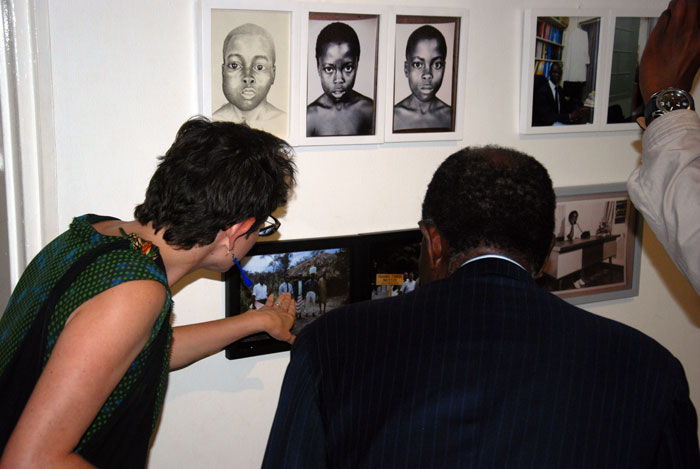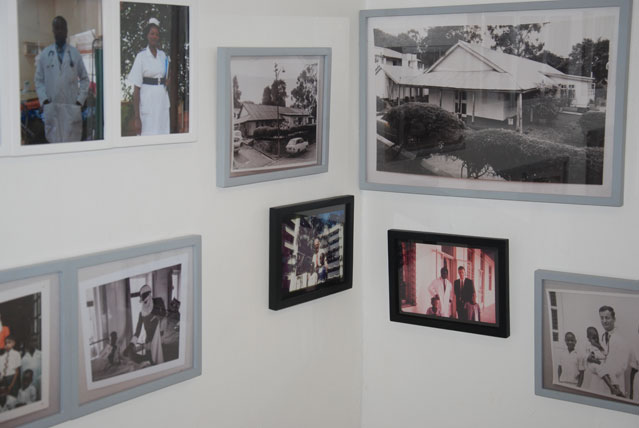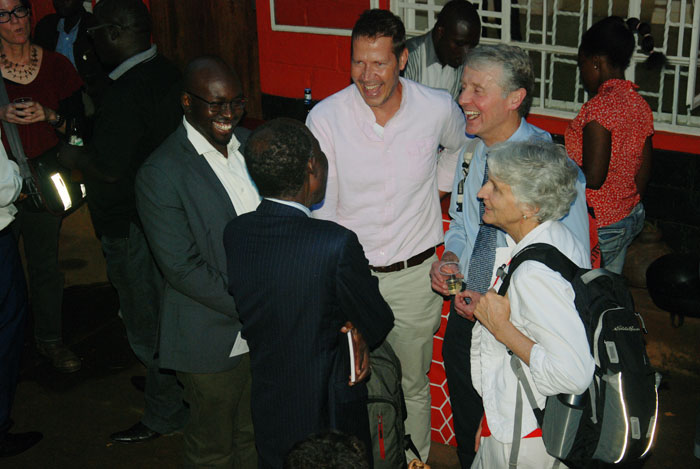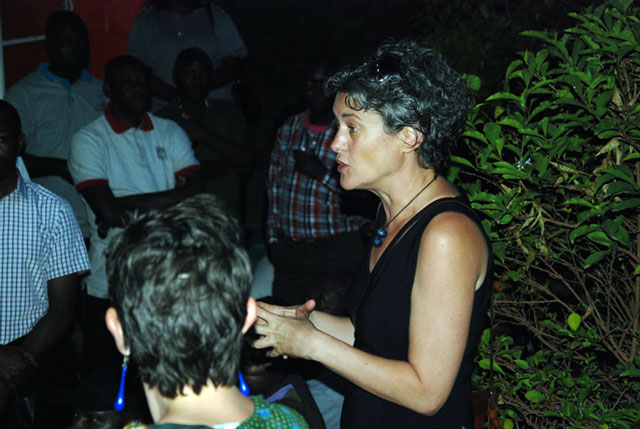
Kampala, Uganda | THE INDEPENDENT | Professor Charles Olweny, the pioneer Ugandan director of the Uganda Cancer Institute in the 70s, has said health workers at the Mulago centre deserve more credit than they are getting.
He was speaking at the official launch of a new book titled “Staying Alive”, which chronicles the history of Uganda Cancer Institute (UCI). The book was compiled by photography historian Andrea Stultiens with the help of the work of then medical history student Marissa Mika, and medical illustrators John Nyende and Butungi Coleb.
Olweny said that work and research of international standard is ongoing at the Uganda Cancer Institute (UCI), but many Ugandans prefer to look at the negative, citing the recent furore over the radiotherapy machine.
“The Cancer Institute became world famous before any Radiotherapy machine ever came to Uganda,” Olweny said.
Professor Olweny narrated how Dr. Denis Burkitt, an Irish surgeon and missionary who started working in Uganda in the late 1950s, pioneered the first successful use of combination chemotherapy to cure cancer.
Burkitt described and developed treatment for childhood lymphoma, a type of cancer that was ravaging many parts of Africa. In recognition of his work, it was eventually named after him, Burkitt lymphoma.
The Irishman was one of the doctors that worked at Makerere’s Mulago Medical School, and with UCI when it was formed in August 1967. Professor Olweny was one of Burkitt’s students.
In 1965, the National Cancer Institute (NCI) in the US, which was deeply involved in chemotherapy research, partnered with Makerere University and began supplying funding and researchers. Two years later the project matured into the Uganda Cancer Institute, that would win international awards in the 70s for Burkitt’s work.
But after the arrival of President Idi Amin, many researchers fled, leaving UCI in the hands of Ugandans.
It was in 1972 nevertheless that Burkitt, Ziegler and two other physician-scientists received the prestigious Lasker awards for their work in Uganda.

In 1967, under the leadership of Dr. John Ziegler, an NCI-trained physician-scientist, the Lymphoma Treatment Centre — the forerunner of what would become the Uganda Cancer Institute — opened.
UCI is this month celebrating 50 years, and several activities have been organised, including a week-long exhibition of Andrea Stultiens’ book at Afriart Gallery in Kampala.
Professor Olweny hailed the current Director Dr Jackson Orem for carrying the torch, and for partnering with the Fred Hutchinson Cancer Research Center in the US. The Fred Hutchinson Cancer Research Center has funded the building of the new cancer centre at Mulago – the UCI-Fred Hutch Cancer Centre – and funded training of health workers.


“Change is necessary but continuity is also important. It’s great to see today that we are working with Fred Hutchinson Cancer Research Center to fight Cancer in Uganda,” Olweny said. (read full speech here – click)
“The Institute became famous because we showed the doctors and nurses can work together to treat patients,” he concluded. (See related video page 2 – click)
Prof Olweny is currently Chairman of UCI, and also Chairman the Board of Governors of St. Francis Hospital, Nsambya. He was Vice- Chancellor of Uganda Martyrs University Nkozi for 8 years. He previously worked for University of Manitoba in Winnipeg and University of Adelaide as a Professor of Oncology. He holds a doctorate in Oncology.
 The Independent Uganda: You get the Truth we Pay the Price
The Independent Uganda: You get the Truth we Pay the Price



